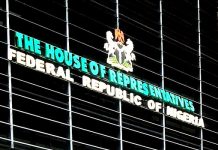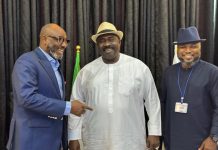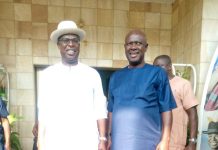News Analysis by Martha Agas, News Agency of Nigeria (NAN)
Africa shares history with Europe, including common values and interests as the two continents have concerns on climate change, migration, trade and democratic governance that require appropriate action expected to be facilitated by the media.
In a bid to build the capacity of the media for joint action on news gathering and management of these concerns, the Taz Panter Foundation, the publisher of Taz die tageszeitung, an independent German newspaper in Berlin, selected African journalists from 15 African countries for training.
The countries are Nigeria, South Africa, Ghana, Mali, Zimbabwe, Sudan, Uganda, Kenya, Rwanda, Tanzania, Cameroon, Ethiopia, Algeria, Egypt and Somalia as participants for a workshop entitled: “Access-Connecting in times of pandemic“ to broaden their understanding on Europe/Africa common concerns.
Beginning from April 29 to May 10, the workshop, supported by the German Foreign Office, comprised two phases of a series of online meetings in Berlin.
There were 10 main topics from COVID-19 pandemic, climate change, fake news and disinformation, gender, migration, digital security and investigative reporting with speakers from European science institutions, non-governmental organisations and media practitioners, among others.
The goal of the training is to give participants an insight to how some issues in Africa are being discussed in Europe.
Mr Ole Schulz, a culture editor at Taz Foundation, Berling and one of the coordinators of the African workshop, said that the training would highlight the impressions of Europeans on certain topics relevant to Africa.
Similarly, a board member of the foundation, Mr Micheal Sontheimer, said that Taz newspaper was established to influence change in government policies and to ensure transparency and accountability in governance through such trainings.
He explained that the media was critical in influencing change through setting public agenda for appropriate action by relevant stakeholders.
Also, the Editor-in-Chief of Taz, Ms Ukrike Winkelmann, said that the organisation was committed to developing journalism through its digital and physical conferences and workshops.
She said that the workshop would equip journalists, especially those from developing nations to improve on their skills and be more exposed to international perspectives on issues affecting their countries.
Researchers, civil societies and analysts presented online papers on climate policies, climate lawsuits on industrialised countries and how to achieve climate neutrality.
Analysts in the training said that the objective of the “presentations is to give participants the European perspective and its implications on Africa’’.
According to the presentations, climate policies include strategies to mitigate climate change which involves reducing greenhouse gas emissions and air pollution.
The Taz Editor for Climate Policy, Mr Bernhard Potter, said “EU is one of the largest emitters of greenhouse gases which being addressed through the Fit for 55 approaches, which target is reducing net greenhouse emissions by at least 55 per cent in 2030.
“Good governance and political will be required for the implementation of climate policy in European countries, Africa and other parts of the world especially on security’’.
He said that issues of insecurity in some parts of the world such as Ukraine could interrupt efforts to implement the climate policy, especially the annual goal of developed countries to provide 100 billion dollars per year for climate actions in developing countries.
Potter said “Africa only emits four per cent of global carbon emission but more development in its region could generate more gas emission.
“In many countries, development means emission goes up as economic success requires building infrastructure and exploring gases; global climate policy is all about how to grow economically without damaging the planet”.
But participants expressed concern that emerging issues such as the use of forests as a hideout for terrorist activities in some parts of Africa could discourage afforestation in some communities.
The Head of International Advocacy of European Council on Refugees and Exiles, Ms Josephine Liebl, said that one of the measures adopted by the organisation to ensure improvement on EU migration policy “is their cooperation with civil societies in third world countries affected by the policy’’.
A member of the European Parliament, Mr Erik Marquadt who is the spokesperson of the German Greens on asylum and migration, raised concern on “the need for advocacy on protection of human rights of refugees and migrants as EU tries to control its borders through its restrictive policies’’.
However, experts believe that accountability and evaluation of the Emergency Trust Fund for Africa (EUTF) established in 2015 by European and African partners would be useful in addressing the lingering issues of migration and forced displacement challenges and opportunities.
They noted that the fund was designated to address root causes of migration and other migration management problems.
But a critic, Marquadt observe that a huge percentage of the fund in the EU was being used only for the isolation policy and repatriation to the detriment of supporting the refugees in Europe.
He noted that the meeting of the African journalists in the workshop would improve their understanding on issues that affect both Europe and Africa.
According to him, the topics discussed would result in more impactful reports that could hold their leaders accountable to make good policies and improve their general wellbeing.





























